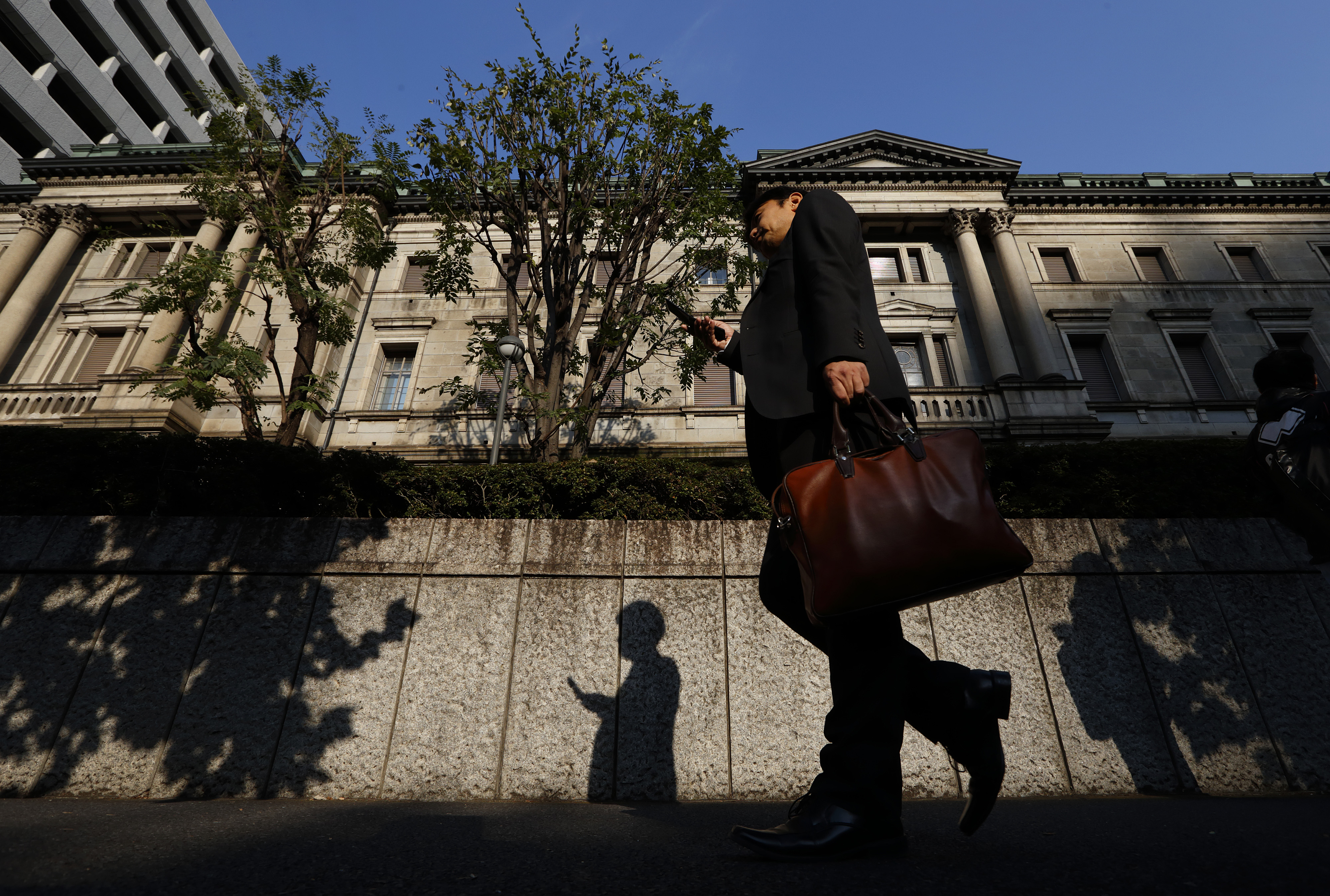The Bank of Japan's policy board is set to discuss this week whether to exempt $90 billion in short-term funds from its newly imposed negative interest rate, people familiar with the matter said, after the securities industry warned that investment money would be driven into bank deposits.
Some in the BOJ are sympathetic to the request, which came from the Investment Trusts Association, the sources said, because a flow from investment to bank accounts will go against a push by Prime Minister Shinzo Abe and the central bank to move more of Japan's immense savings out of deposits and government bonds and into more productive investments, to kick-start growth and defeat stubborn deflation.
But other central bankers worry that granting an exemption from negative rates for "money reserve funds" (MRFs) — a low-risk product brokerages offer investors to temporarily park their cash — could create a troublesome precedent as the financial industry seeks to shield other investments from negative rates, the people say.

















With your current subscription plan you can comment on stories. However, before writing your first comment, please create a display name in the Profile section of your subscriber account page.